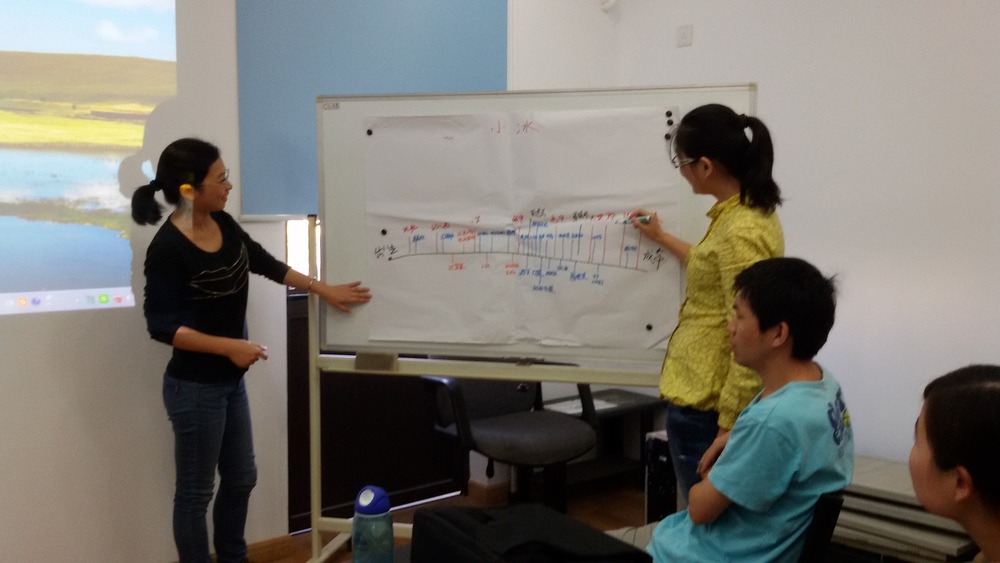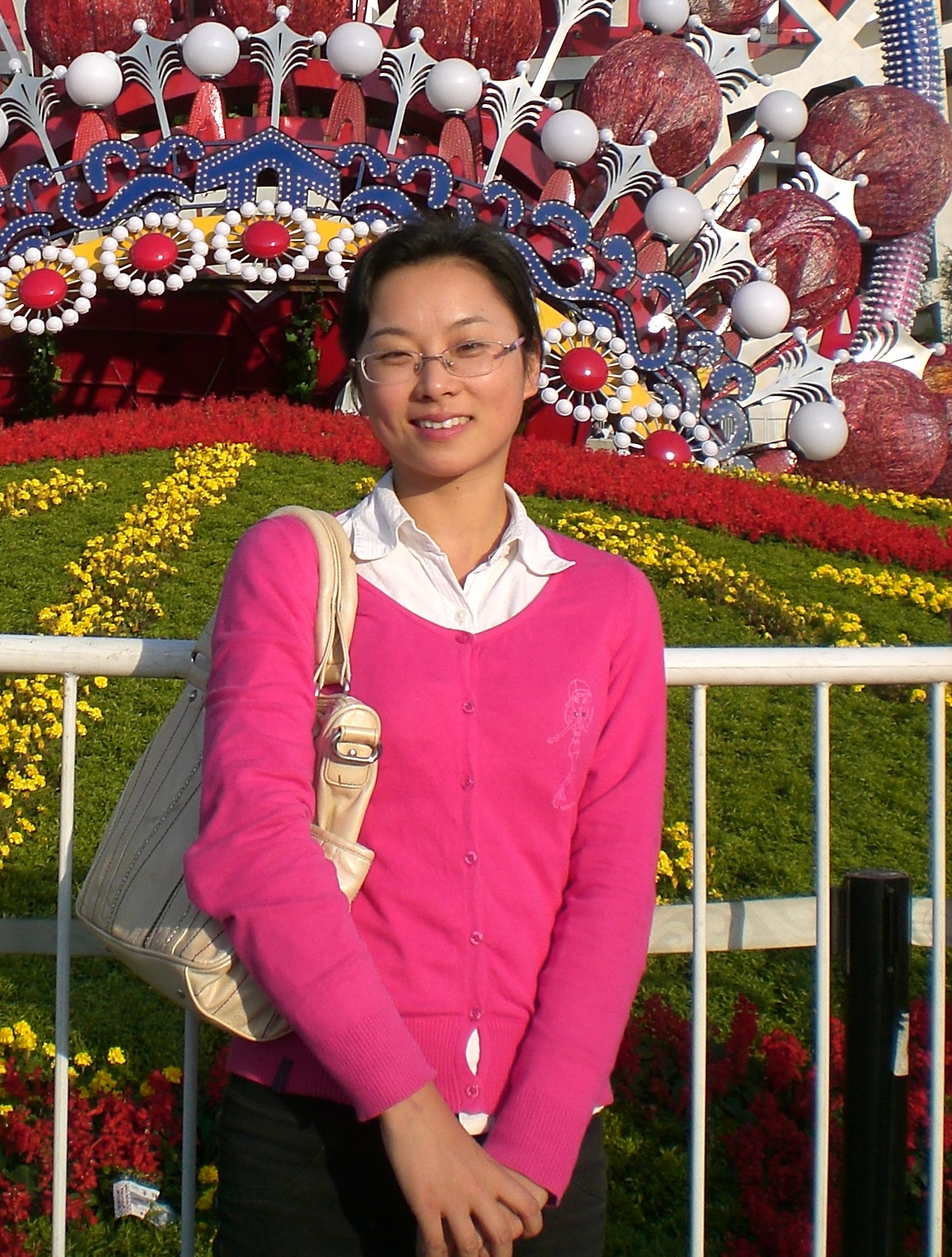Shanghai, China
The Global Early Adolescent Study is partnering with Shanghai Institute of Planned Parenthood Research (SIPPR), which was established in 1978 and affiliated to Shanghai Academy of Science & Technology and is a social welfare research institution in the field of family planning and reproductive health. It is recognized as Collaborating Center for Research in Reproduction by the World Health Organization (WHO) for consecutive years since 1983. SIPPR is a supporting institution for “Key Laboratory of Contraceptive Drugs and Devices”, “Shanghai Engineering Research Center of Reproductive Health Drugs and devices”, “National Evaluation Centre for the Toxicology of Fertility Regulating Drugs” and “Shanghai Family Planning and Reproductive Health Research Institute” and other research bases and academic organizations, as well as one of the construction units of “Institute of Reproductive and Development of Fudan University”. Its main responsibilities include: providing scientific and technological support for meeting Chinese people’s needs for family planning and reproductive health; providing policy-making consultation for health and family planning authorities of different levels to design relevant polices and promotion models; and providing society with public services by popularizing popular science and publishing technical journals and other forms. Currently SIPPR has 212 regular employees, 181 of whom are scientists/technicians.
SIPPR attaches importance to strengthening international cooperation with international organizations and foundations like WHO, United Nations Population Fund, Ford foundation, Gates Foundation, and numerous foreign universities and research institutions and always maintains extensive international influence in research fields regarding research and development of birth control drugs and reproductive health.
We are partnering with SIPPR for conducting the longitudinal phase of the Global Early Adolescent Study in Shanghai, China. This longitudinal phase builds on the first by exploring how gender norms relate to health throughout the adolescent years, beginning in early adolescence. The GEAS in Shanghai has the following objectives: to explore how perceptions of gender norms evolve across adolescence, the factors influencing these changes, and how perceptions of gender norms predict a spectrum of adolescent outcomes across the adolescent years. A total of 1,500 young people ages 11-14 in Shanghai are followed over a period of four years, participating in a total of four surveys. The sample only include in-school youth and are based on school selection in the sub-districts of the Zhabei District (the District was consolidated into Jing’an District administratively after 2015). All participants complete a baseline survey and are surveyed again at the end of years 2, 3 and 4. Following the same procedure as in Phase I of the GEAS, data collection are conducted by trained interviewers using mobile tablets with computer-assisted self-interview (CASI).


The survey takes place in two sub-districts within the Zhabei District. In 2010, the population of this district was 830,476, and was home to the largest proportion of urban poor dwellers and internal migrants in Shanghai. Zhabei District is divided into 9 sub-districts.
There are 30 secondary schools serving nearly 16,000 children (11 – 15 years old) located in the Zhabei District. Public secondary schools in Shanghai enroll students in grades 6-9 who live near the school. These schools also provide tuition waivers based on the national 9-year mandatory education policy, which mandates education for all adolescents of eligible age, including those who are migrants and those living in foster families. This study recruit adolescents attending three public schools in the underdeveloped Baoshan and Pengpu sub-districts of the Zhabei District. All eligible students in grades 6, 7 and 8 are recruited to allow for a cluster sample of at least 1,500 adolescents aged 11-14 years.
Lou Chaohua: Principal Investigator
Dr. Lou Chaohua graduated from Shanghai Medical University, where she earned her Master's Degree of Medicine in 1989. In 1996, she completed postdoctoral training at the School of Hygiene and Public Health, Johns Hopkins University. At present, she is a senior researcher and the team leader of research on reproductive health of adolescents in Shanghai Institute of Planned Parenthood Research (SIPPR), and an adviser of PhD students in Fudan University of China. She has been PI or local PI for more than 20 national and international research projects supported by HRP/WHO, Ford Foundation, Bill and Melinda Gates Institute of Johns Hopkins University, Chinese Family Planning Association (CFPA)/PATH, State Population and Family Planning Commission (SPFPC/UNFPA), and others. She has published more than 200 research papers in national and international peer-reviewed journals based on the results from these projects, and has co-edited/translated 7 books.
She and her research team have engaged in studies on adolescent sexual and reproductive health for more than 20 years, including studies on the status of adolescents' and unmarried young people’s sexual and reproductive health and their needs on sex education and reproductive health services; studies on the attitudes of people (including policy-makers, family planning staff, educators, and parents) towards providing sex education and reproductive health services to adolescents and unmarried youth and their suggestions on the education and services; studies on the intervention of sex education and reproductive health services in school, family, community, and the internet. Dr. Lou is the local PI of the Shanghai site for the Global Early Adolescent Study. Contact Dr. Lou.
Zuo Xiayun, Field Coordinator
Zuo Xiayun is an assistant researcher at the Shanghai Institute of Planned Parenthood Research (SIPPR). She holds a master's in epidemiology and biostatistics from the School of Public Health at Fudan University (2006) and is currently a PhD candidate in gender and reproductive health. She has engaged in adolescent sexual reproductive health research and interventions for 10 years, and has particular interests in adolescent sexual violence, adolescents’ gender development and gender diversity, and decision-making process on induced abortion of disadvantaged women. As co-PI, she has participated in two multi-center studies, “Study on decision-making process on induced abortion and abortion care among unmarried women in Shanghai” supported by WHO, and “Monitoring on children and adolescent gender development and reproductive health in China” supported by the Ford Foundation. Ms. Zuo has published almost 20 papers on domestic and international journals, and three are SCI papers.
Chunyan Yu, Program Manager
Ms. Chunyan Yu, MD, is a research assistant in SIPPR and an program manager for the GEAS in Shanghai . She has engaged in adolescent related research and interventions for over 10 years. She is interested in exploring biological, mental, and social behavioral factors related to ASRH. She has much experience on study implementation and data analysis as well as paper writing. She has participated in several international cooperating projects, which include Global Early Adolescent Study (GEAS) Phase I and Well-being of Adolescents in Vulnerable Environments (WAVE) Phase I & II. The highlights of her research include social consequences to adolescents who challenge gender norms, how finger ratio related to sex and mental health development, and the internal migrants’ health issues as well as their health seeking barriers. As first author or correspondent author, she has published about 10 papers on domestic and international journals.
Mr. Qiguo Lian, Research Assistant
Mr. Qiguo Lian, MD, is currently the Research Assistant on the research of ASRH. He has engaged in ASRH research in SIPPR over 10 years, and is particularly interested in child and adolescent development and behaviors. The highlights of his research include health risk behaviors among sexual and gender minority (lesbian, gay, bisexual, and transgender, LGBT) and gender nonconforming adolescents, school bullying and early puberty. He has much experience on computer-assisted self-interview approach among adolescents, e.g. designing the electronic online questionnaires and related data managements. He has published more than 10 papers on international peer-reviewed journals and published one book on data management and analysis using Stata statistical software.
Dr. Xiaowen Tu, Senior Researcher
Dr. Xiaowen Tu, Ph.D, is senior researcher in the department of epidemiology and social science on reproductive health, SIPPR. She has been PI of research projects on ASRH supported by UNESCO, RHR/WHO, Bill and Melinda Gates Institute for Population and Reproductive Health, Johns Hopkins Bloomberg School of Public Health, Ford Foundation, State Population and Family Planning Committee of China, etc. Her main research areas include adolescent sexual-related knowledge, attitudes and behaviors, and their needs for sexuality education and reproductive health services as well as the relevant barriers; impact of adolescent sexuality education and reproductive health services program; gender-based violence; ASRH of young people with disabilities. She has published more than 100 papers in peer-reviewed academic journals.





